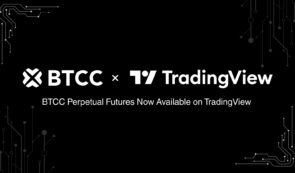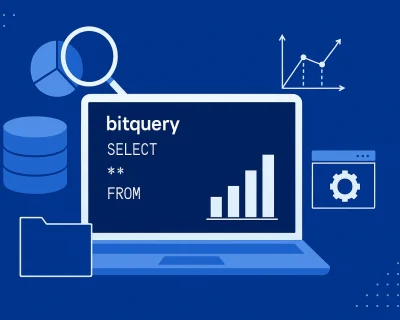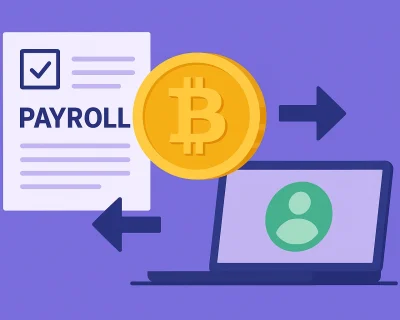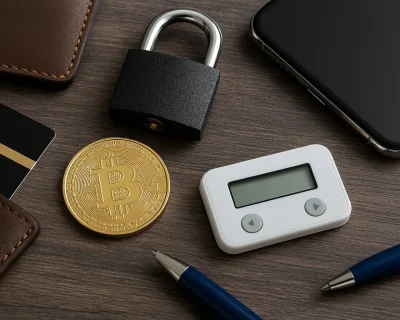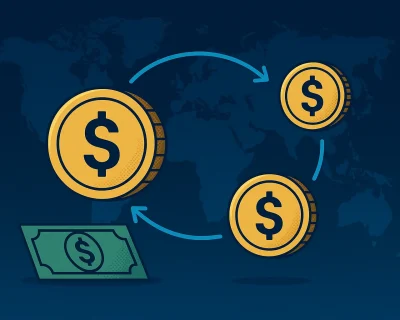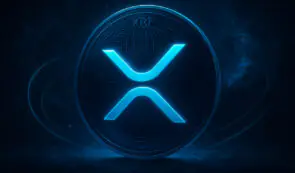Kraken vs. Bitstamp – A Deep Dive into Crypto Exchange Features
Nowadays, the crypto exchanges we decide to use are vital to the safety of our funds, and the FTX crash has shown this and how important it is to research an exchange more thoroughly before giving it your trust.
Cryptocurrency investors should choose an exchange that meets their demands in all critical aspects. Traders must research and examine factors like trading fees, user interface, deposit and withdrawal alternatives, coin support, support for fiat currency, trading pair support, and security to achieve that.
In this exchange comparison, we’ll go through Kraken vs Bitstamp regarding their key attributes.
Kraken vs. Bitstamp – Overview
Before getting started with other technical details, let’s look at the origins of each platform.
Kraken

2011 will be remembered for a few things in the world of crypto. One of the positive developments was that the price of one Bitcoin (BTC) surged to one US dollar for the first time ever! This meant that the value of cryptocurrencies was increasing, and more individuals began to consider becoming involved. In the same year, Mt. Gox, one of the earliest and most prominent cryptocurrency exchanges, fell victim to a major hacking incident in which users lost most of their Bitcoins.
Mt. Gox CEO Mark Karpelès requested Jesse Powell to join the rest of the team in resurrecting the firm. Around that time, Jesse began to consider what may happen if he attempted to create his own platform and handle things differently, reducing the danger of hackers. That’s how he ended up founding Kraken the same year, with headquarters in San Francisco, California.
Kraken soon grew to become one of the leading digital currency platforms in terms of market liquidity and euro volume. Powell has come to appreciate high-tech security measures above all else and does not hold back when investing in more features and updates to secure clients’ assets on Kraken. As a result, traders are driven to the platform by its usefulness and dependability.
Bitstamp

Damian Merlak and Nejc Kodric established Bitstamp, a well-known trading website, and Bitcoin exchange, in Slovenia, in 2011. The goal of the platform’s creators was to establish trust. Therefore, it had to relocate some of its operations to a location where cryptocurrency trade would be regulated.
Bitstamp moved to Luxembourg in 2016 as the first exchange with a national license. It is now subject to the same rules as other financial institutions operating there and throughout the European Union.
Since then, the exchange has grown, attracting more traders and expanding its trading pairs.
Kraken vs. Bitstamp – Supported Currencies
Fiat currencies can be added to or taken out of your Kraken account via bank transfers from various locations internationally. The Fiat currencies accepted by Kraken are USD, EUR, CAD, GBP, CHF, and AUD. The exchange also supports a wide range of cryptocurrencies, with over 220 coins and tokens available.
Bitstamp accepts the USD, EUR, and GBP as fiat currencies. It supports Ripple (XRP), Bitcoin Cash (BCH), Litecoin (LTC), Ethereum (ETH), and Bitcoin (BTC) as digital currencies, among other options. In contrast to Kraken, Bitstamp only supports approximately 80 cryptos at the moment.
If you are a skilled trader, you will probably select Kraken since it offers more cryptocurrencies, trading pairs, and considerably better liquidity.
Kraken vs. Bitstamp – Fees
The cheaper costs of Bitstamp and Kraken compared to other platforms are a common feature. Kraken employs the maker and taker fee scheme, and they have a thorough guide that goes into further detail about this on its website.
If the trade volume is less than $50,000, there will be a maker cost of 0.16% and a taker fee of 0.26%. The maker and taker costs can be as low as 0.14% and 0.24%, respectively, if the 30-day volume exceeds $50,000 and to the extent that if someone invests over $10 million, the maker fee is 0.00%, and the taker fee is 0.10%. Thus, Kraken provides volume-based trading charge savings.
Bitstamp adopts fee structures that closely mirror Kraken’s ones, with taker fees ranging from 0.00% to 0.40% and maker fees ranging from 0.00% to 0.30%.
In terms of credit card purchases on Kraken, the fees reach 3.75% plus €0.25. For ACH purchases, fees of 0.5% are applicable, along with an extra 0.9% or 1.5%, depending on specific factors. Altogether, these costs can reach as high as 5%, representing the higher end of fees than most other trades.
Deposits made using EUR SEPA are free on Bitstamp. Foreign deposits have a minimum cost of 7.5 USD/EUR or a 0.05% fee paid by users transacting outside of the EU. The highest cost for withdrawals is 0.09%.
The benefit of using Bitstamp is that credit card transactions are permitted. However, the costs of doing so are somewhat higher (5%). Yet, a lot of beginners opt for this alternative.
Kraken vs. Bitstamp – Security
To give an extra level of security to user accounts, Kraken employs two-factor authentication (2FA) via Google Authenticator. Most of its customers’ Bitcoin holdings are stored in cold storage, which is not linked to the internet, making them less vulnerable to hacking attempts.
Kraken employs SSL encryption to safeguard all communications between its users and server browsers, preventing third parties from intercepting confidential user information. Furthermore, Kraken is subject to frequent security audits by third-party organizations in order to uncover possible weaknesses and enhance its security procedures.
Bitstamp has experienced security difficulties in the past. Its reputation was impacted in 2015 after hackers stole over 19,000 BTC from the company. The exchange did all in its ability to repay its customers for the lost coins, demonstrating that it had learned from its mistake.
Bitstamp was the first to implement two-factor authentication, require confirmation emails, and use a fully insured cold wallet, which is now employed by most other platforms, including Kraken.
Kraken vs. Bitstamp – Availability and User Base
Bitstamp and Kraken are popular cryptocurrency exchanges, although their user bases and accessibility vary. In addition to supporting a broad range of fiat currencies, such as USD, CAD, EUR, JPYCHF, AUD, and GBP, Kraken is available in over 190 countries, including in Europe, the US, and in Asia.
Bitstamp also provides many cryptocurrencies for trading. In contrast, Bitstamp is accessible in more than 50 countries, including in Europe, the US, and in a few Asian countries. It accepts fiat currencies, such as the EUR, USD, and GBP, but it provides a more limited selection of cryptocurrencies and fiat currencies than Kraken.
Kraken has a vast and active user base, with more than 7 million members globally. It is trendy in North America and Europe, where it is famous for its enormous trade volumes and sophisticated trading capabilities.
Bitstamp has a smaller user base than Kraken, with around 4 million registered users. It is also popular in North America and Europe, but it is noted for its easy-to-use interface and features for beginners.
Kraken vs. Bitstamp – Deposits and Withdrawal Methods
Kraken offers several deposit methods, including bank transfers (Fedwire, ACH, SWIFT), cryptocurrency transfers, Interac e-Transfer (Canada), ClearJunction (EUR), and Etana custody. Bitstamp, on the other hand, accepts deposits through bank transfer (international wire, SEPA), debit/credit card (Mastercard, Visa), and Bitcoin transfer.
When it comes to withdrawal options, Bitstamp and Kraken are comparable. Users can withdraw funds from both exchanges by bank transfer (international wire, SEPA), ClearJunction (EUR), and cryptocurrency transfer. Moreover, Kraken provides Etana custody as a withdrawal mechanism, whereas Bitstamp enables customers to transfer cash using a debit/credit card.
Kraken vs. Bitstamp – Usability
Kraken is sometimes criticized for its unappealing interface, which necessitates some understanding of crypto trading lingo and maybe even prior expertise in the market. The website is clumsy and often buggy. Its volumes, statistics, and charts are appropriate for experienced traders.
Before creating an account on Kraken, the platform will ask you to confirm that your country is supported. Due to regulatory variances, the exchange is available nearly everywhere globally except for Japan, Iraq, Iran, Cuba, Afghanistan, North Korea, and Tajikistan. After verifying your account, you can select a Basic interface if you are a newbie or an Intermediate or Advanced interface, depending on your preference.
The problem with Kraken is that if you deposit fiat currency by bank transfer, it takes an additional 1-5 business days before the funds are transferred to your Kraken account. You will then be able to place your order.
Bitstamp, its competitor, was also not designed with beginners’ needs in mind. Nonetheless, its user interface is far more welcoming and well-organized when compared to Kraken. Newcomers will have no trouble navigating the site as long as they select the ‘Basic Order’ option when placing an order.
Here we also point out that both platforms also have mobile apps available on iOS and Android devices.
Kraken vs. Bitstamp – Support
With the unexpected surge of crypto fans, crypto exchanges have difficulty providing enough customer assistance.
Customers have previously filed complaints about Kraken’s lack of reaction. As a result, the team implemented a 24/7 live chat feature to their website, requiring them to respond to clients’ inquiries as soon as possible.
Bitstamp provides excellent customer service and has gained the trust of numerous users. It has a reputation for responding to inquiries in an hour or less and is always there to help its customers in times of need. In order to reply to every support issue quickly and effectively, the team often employs additional workers during peak periods.
Kraken vs. Bitstamp – Winner
You may trade with affordable trading fees and have your money well-secured with both Kraken and Bitstamp. Both will let you deposit fiat currencies, but Kraken has a larger selection of cryptocurrencies.
Veteran traders laud Kraken for its abundance of charts, trading tools, technical data, and options, but newbies who like to keep things simple may criticize it.
Pay great attention to your investing capabilities and pick the best exchange that suits you, as you cannot go wrong.





